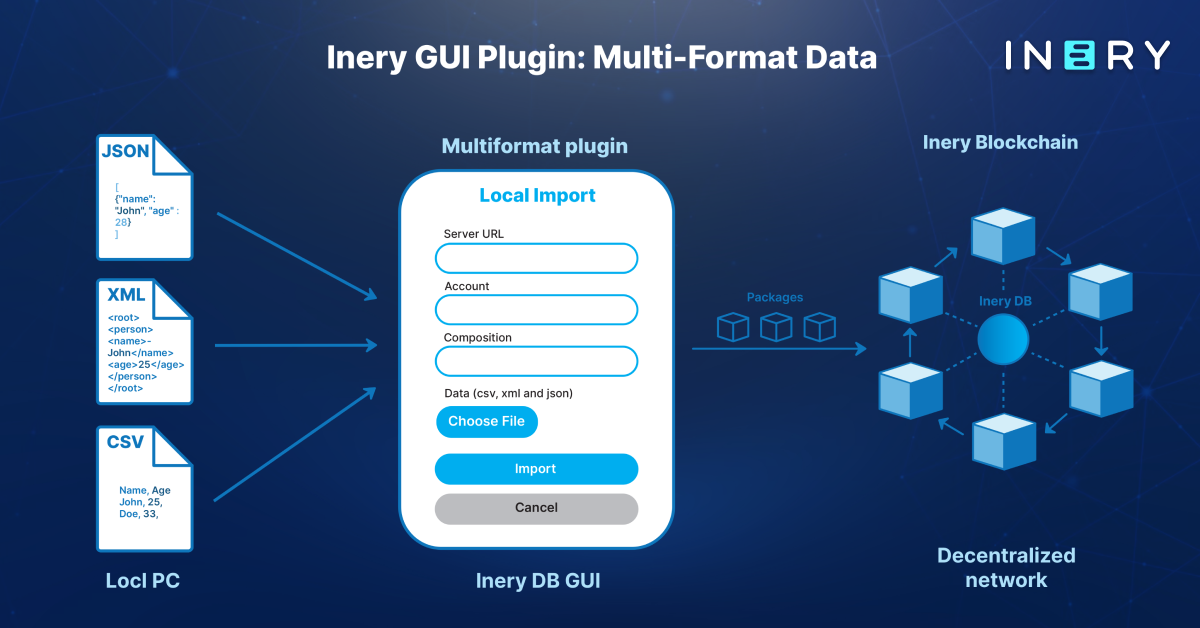In the business world, "big data" is often seen as the new big thing. Or, as our co-founder, Dr. Naveen Singh, would say – like oil. It’s rich, valuable, and critical to maintaining a competitive edge. Companies across industries invest heavily in data collection, storage, and analysis, aiming to unlock consumer behaviors, market trends, and predictive insights.
Yet, beneath this glistening and glittering surface of potential lies a complex, often overlooked issue: the hidden liabilities associated with big data. For every benefit it promises, big data brings with it challenges that can quickly turn it from a prized asset into a damaging liability.
The Double-Edged Sword of Big Data
Big data analytics undeniably offers significant competitive advantages. It empowers companies to understand customer behaviors deeply and predict future trends with remarkable accuracy. Imagine the scenario: after leaving work, you get a perfectly timed notification reminding you to buy milk. Even better, you can order and have it ready for pickup instantly. This seamless consumer experience is made possible by analyzing vast amounts of personal information. However, this convenience is precisely where the issue begins.
As highlighted by Forbes, consumers are increasingly aware and concerned about the extent of data companies gather. Pew Research found that around 79% of Americans feel concerned about companies' use of their personal data, and a significant 81% believe that the risks of data collection outweigh the benefits. These numbers indicate growing public anxiety, which companies cannot afford to ignore.
From Asset to Liability: The Hidden Dangers
Big data doesn’t come free. It carries substantial costs. Storing vast data troves demands infrastructure, maintenance, and ongoing management expenses. Beyond these financial implications, companies face significant legal and regulatory responsibilities. Mishandling or inadequately securing personal data can result in severe consequences.
European regulations like GDPR clearly illustrate the potential risks. Non-compliance can result in fines as high as 4% of annual global revenue or €20 million, whichever is greater. A recent UK court ruling expanded GDPR’s scope, making virtually all personal information, even indirect identifiers like spouses' names or video footage from security cameras, subject to strict compliance. Such expansive interpretations of privacy laws dramatically raise the stakes for data management.
Moreover, businesses often fail to recognize that purchased third-party data carries the same compliance obligations as directly collected data. Companies must ensure rigorous due diligence to confirm that permissions have been properly acquired for any external data sources. Ignorance or oversight in this area can lead to crippling legal actions and reputational damage, as highlighted by corporate law expert Ashley Winton in discussions on data governance.
The Myth of Anonymity
One of the greatest misconceptions about big data is that anonymized data is inherently safe. However, research has consistently shown that anonymous data can often be re-identified by combining different datasets. A 2019 study demonstrated that 99.98% of Americans could be re-identified with just 15 demographic data elements. This re-identification issue poses immense legal and ethical challenges. When consumers trust that their data is anonymized, only to have their privacy compromised, companies risk losing trust and facing severe legal repercussions.
Such vulnerabilities turn seemingly benign data sets into potential surveillance tools, inadvertently pushing businesses into ethically questionable and legally risky territory. Jens-Erik Mai, a renowned expert in information ethics, emphasizes that businesses must consider not just whether they can analyze personal data but whether they ethically should. Companies must shift their perspectives from pure capability to responsibility and caution.
Consumer Anxiety and Loss of Control
Pew Research also emphasizes another critical point: consumers feel they lack control over their personal data. Around 81% of Americans feel powerless regarding how their information is gathered and used by companies. This perceived loss of control fuels growing distrust, especially toward social media and advertising platforms, and impacts consumer loyalty and engagement.
These concerns are not unfounded. Roughly 72% of Americans believe companies track nearly all their online activities. Alarmingly, many consumers are unsure about how this collected data is ultimately used, with 78% reporting little to no understanding of company data practices. When consumers feel uncertain, confused, or deceived, companies lose credibility and potential long-term relationships.
How Can Businesses Mitigate These Risks?
Addressing big data liabilities requires reliable, transparent data governance policies. Companies should explicitly inform consumers about data usage through clear communication and consent frameworks. Incorporating metadata (data about data) that clearly outlines governance, permissions, and usage restrictions can help maintain compliance and build consumer trust.
Another effective measure is implementing decentralized data management platforms, such as those offered by Inery. Unlike traditional centralized databases, decentralized systems significantly reduce risk exposure. They distribute data across multiple nodes, enhancing security, traceability, and accountability. This method helps ensure that companies not only comply with existing regulations but also proactively protect against future liabilities.
Inery’s decentralized approach separates metadata management from raw data storage, placing metadata securely on-chain and raw data off-chain, thus providing verifiable, transparent control of data access and use. This design inherently supports compliance with stringent data regulations by ensuring transparency and traceability in data handling.
Future-Proofing Your Data Strategy
As regulatory bodies evolve and consumer awareness rises, data management strategies must also evolve. Decentralized solutions like Inery enable organizations to future-proof their data handling processes, reducing liabilities while maintaining the valuable insights big data can provide.
By rethinking your data management strategies today, you can transform big data from a lurking liability into a resilient, ethical asset. Adopting solutions that prioritize transparency, compliance, and consumer trust is essential for long-term success.
The Inery Advantage
Inery provides businesses and enterprises with advanced decentralized database solutions that address critical issues associated with big data liabilities. With Inery, companies gain a secure, scalable, and compliant way to handle data, ensuring transparency and fostering consumer trust.
Ready to turn your big data from a potential liability into a secure and compliant asset? Discover how Inery can revolutionize your data management and compliance processes.

Inery•
1 year ago
The Future of Data Security in Remote or Hybrid Work Environments
Explore the evolution of remote work, its impact on data security, and how companies can safeguard their information in an increasingly hybrid work environment. ...READ MORE
-1721906313.png)
Share

Inery•
7 months ago
When Data Finds Your Lost Parcel Before You Do
See how smarter, decentralized logistics powered by Inery ensures parcels arrive on time by proactively addressing common delivery issues. ...READ MORE

Share

Inery•
2 years ago
Can You Trust the Cloud?
From enhancing security measures to optimizing scalability and performance, discover how Inery's innovative solutions redefine the reliability of cloud data management. ...READ MORE

Share

Inery•
1 year ago
Is There Such a Thing as Too Much Data?
Overwhelmed by the digital clutter? Discover why too much data isn’t the problem. It’s the lack of organization. Learn how tools like Inery can transform digital chaos into a streamlined, secure, and efficient system. ...READ MORE

Share
Most popular today



